Select the incorrect statement about Bulk modulus of elasticity.
(1) It is defined for solids, liquids and gases.
(2)
(3) The bulk modulus of gas is different for different processes.
(4) Almost for all materials, the Bulk modulus increases with the rise in temperature.
The figure below shows the stress-strain curve for two bodies A and B.
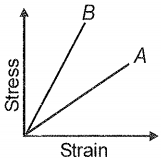
Choose the correct option.
(1) A is having greater elasticity than B.
(2) B is having a greater elasticity than A.
(3) Both A and B have the same elasticity.
(4) A and B both show plasticity.
When a load of 1 kg is hung from the wire, then the extension of 2 mm is produced. Then work done by restoring force is:
(1) 200 mJ
(2) 400 mJ
(3) 10 mJ
(4) 20 mJ
Stress vs strain graphs for two different wires \(A\) and \(B\) are given. If \(Y_A\) and \(Y_B\) are Young's moduli of the materials, then:
1. \(Y_{A}=\sqrt{3} Y_{B} \)
2. \( \sqrt{3} Y_{A}=Y_{B} \)
3. \(Y_{A}=3 Y_{B} \)
4. \( 3 Y_{A}=Y_{B} \)
Hooke's Law is obeyed within:
(1) Elastic limit
(2) Proportionality limit
(3) Breaking point
(4) Freezing point
Elongation in the wire of length L and Young's modulus of Y when blocks of weight W each are hung as shown below-
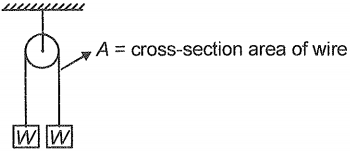
1.
2.
3.
4.
The diagrams represent the potential energy U as a function of interatomic separation r. Which of the following diagrams corresponds to stable molecules found in nature?
1. 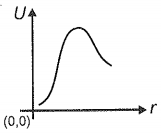
2. 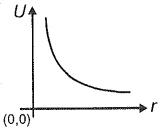
3. 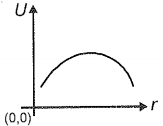
4. 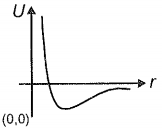
Two wires \(X\) and \(Y\) of the same length are made of the same material. The figure represents the load \(F\) versus extension \(\Delta x\) graph for the two wires. Hence:
| 1. | Modulus of elasticity of \(Y\) is greater than that of \(X\). |
| 2. | Stiffness of \(Y\) is more than that of \(X\). |
| 3. | The cross-sectional area of \(Y\) is less than that of \(X\). |
| 4. | All of these |
If stress versus strain plot for a metal at two different temperatures are shown below, then:
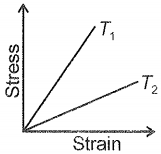
1.
2.
3.
4.
The ratio of Young's modulus of wire \(A\) to wire \(B\) is:

1. \(3:1\)
2. \(1:3\)
3. \(\sqrt{3}:1\)
4. \(1: \sqrt{3}\)








